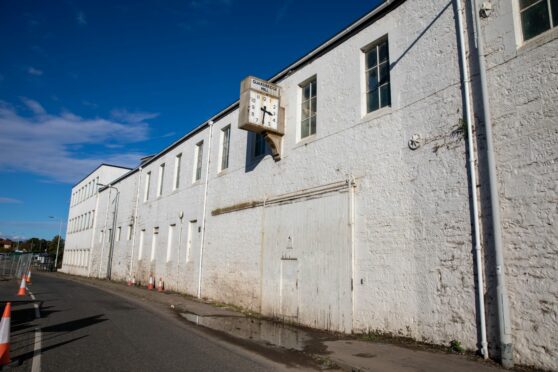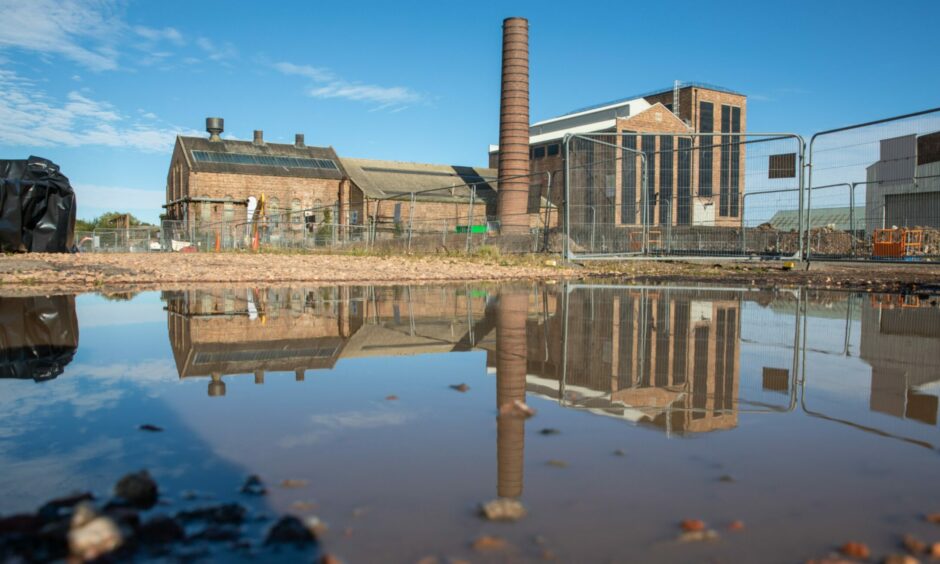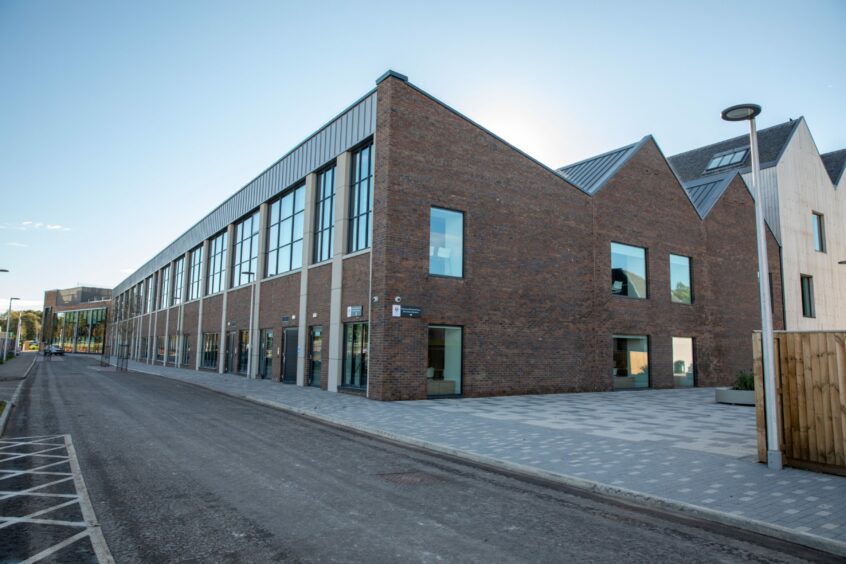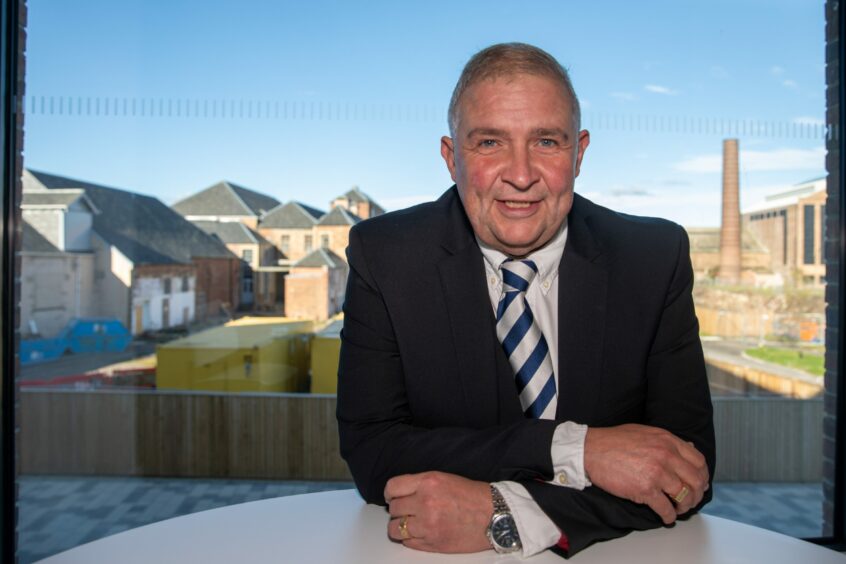St Andrews University may need another £100 million to complete the vision for its Guardbridge innovation centre.
Eden Campus aims to bring academia and industry together to help shape a sustainable future.
Already more than £70m has been spent transforming the vast former Curtis Fine Papers site.
A biomass plant cost £25m and a similar sum was spent creating modern offices for professional services staff.
As well as the initial cost of the site, money has been spent demolishing buildings and creating a solar farm. Asbestos removal alone cost £10m.
This month marks the start of the next phase of the project.
Next phase of Eden Campus
A large building will be transformed into an innovation hub and prototyping facility. Nearby a new building will be created for a battery test and development centre.
Work on both sites – at a cost of more than £5m – will take around a year to complete.
Geoff Morris, director of Eden Campus, said: “We want to take a lot of our colleagues’ ideas from a lab bench.
“What we are calling building one will house a maker space so anyone who requires a prototype will be able to have it made.
“It will have a 3D printing suite and also be home to a university spin-out company, X-Genix, which looks at sustainable pharmaceuticals.
“The new build will have a dry laboratory, the first of its kind in Scotland.
“It is a very technical facility and will look at the next generation of fuel cell and battery technology.”
Eden Campus development so far
The Eden Campus has been many years in development. The first project was the creation of a biomass plant, commissioned in 2016.
It provides heat and hot water to 43 buildings in St Andrews and over 2,500 student rooms. It is also a key element to St Andrews University plans to become carbon neutral by 2035.
Adjacent to the biomass will be Eden Mill’s new distillery, which will create 40 jobs and attract around 30,000 visitors a year.
Work creating Walter Bower House finished last year. It will house 450 of the university’s professional service staff, most of whom are still working from home. This frees up teaching space at university buildings in St Andrews.
It also has vast library storage for the university’s archive – approximately 10 miles of shelves.
The building also contains a new entrepreneurial centre aimed at stimulating start-ups from students and staff. Around 200 people will engage in its courses a year.
A 1MW solar farm to provide green electricity to the site will be completed this month.
Future Eden Campus plans
A future project will be the creation of an entrepreneurial hub in partnership with Fife Council and the Scottish Government. The design work for this will start before Christmas.
A collection of buildings at the northern end of the site are also available for use and the campus has space for more new builds in the coming years and decades.
The project received £26.5m through the Tay Cities Deal, but many more millions will need to be raised.
Mr Morris said: “A combination of all of the funding we’ve brought in, the work we’ve done, buying the site, demolitions… we are somewhere north of £70m.
“Realistically to get this place fully ship-shape we need another £100m.
“The worst thing that could happen is we do some of the project and then pause.
“We need to look everywhere for the money, governments, investors, philanthropists and leave no stone unturned.”
De-risking innovation and growing a knowledge economy
St Andrews University chief operating officer Derek Watson said he was excited about the future of the site.
He said the Eden Campus will put St Andrews University at the “vanguard of innovation” globally.
He said: “We are quite proud of what we are doing. Tay Cities gave us enough to make an impact but it’s just the start.
“We want to be known for innovation, germs of ideas, de-risking, proving what works.
“There are possibly other parts of Fife and Tayside better suited if they get into manufacture – Levenmouth or MSIP project in Dundee.
“Companies will come to use the facilities and be next to our academics, hopefully take in our students and keep them here.
“Let’s grow an economy here that’s based around knowledge.”
Curtis Fine Papers went into administration in 2008, with the loss of 260 jobs.



